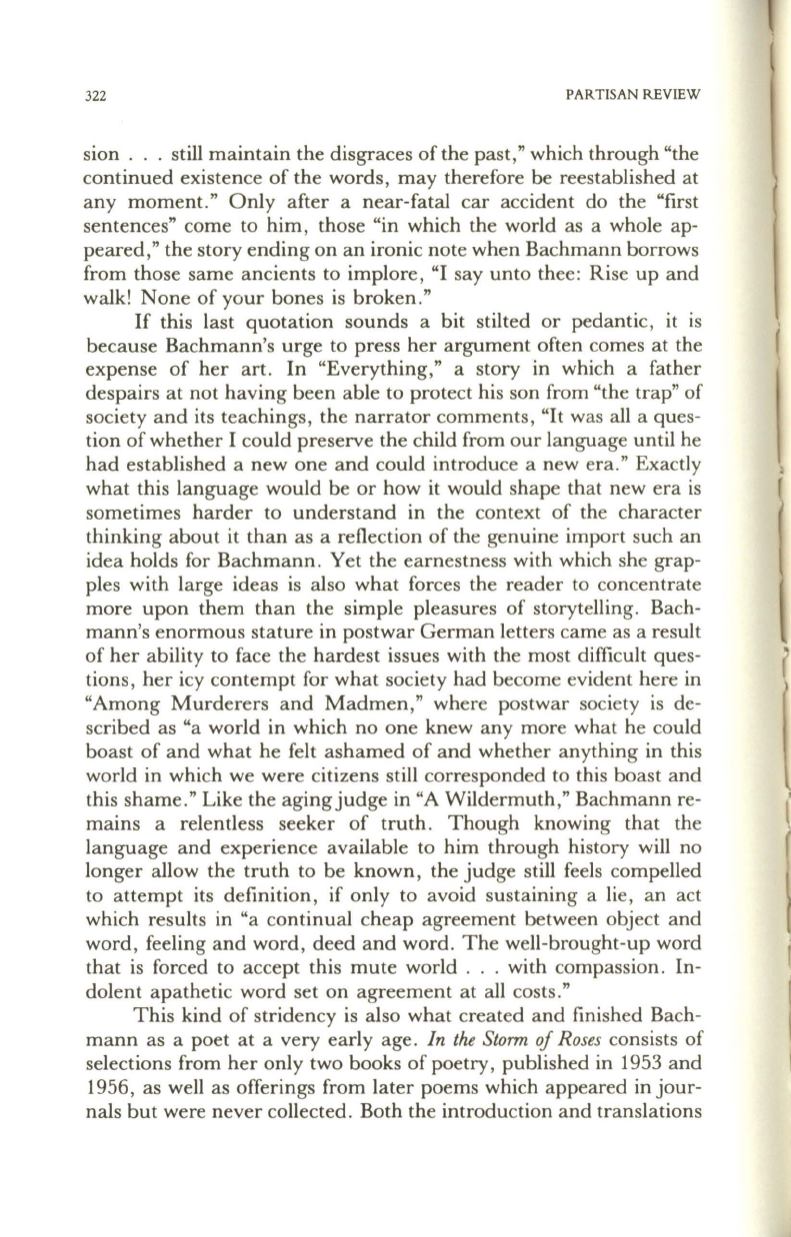
322
PARTISAN REVIEW
sion ... still maintain the disgraces of the past," which through "the
continued existence of the words, may therefore be reestablished at
any moment." Only after a near-fatal car accident do the "first
sentences" come to him, those "in which the world as a whole ap–
peared," the story ending on an ironic note when Bachmann borrows
from those same ancients to implore, "I say unto thee: Rise up and
walk! None of your bones is broken."
If
this last quotation sounds a bit stilted or pedantic, it is
because Bachmann's urge to press her argument often comes at the
expense of her art. In "Everything," a story in which a father
despairs at not having been able to protect his son from "the trap" of
society and its teachings, the narrator comments, "It was all a ques–
tion of whether I could preserve the child from our language until he
had established a new one and could introduce a new era." Exactly
what this language would be or how it would shape that new era is
sometimes harder to understand in the context of the character
thinking about it than as a reflection of the genuine import such an
idea holds for Bachmann. Yet the earnestness with which she grap–
ples with large ideas is also what forces the reader to concentrate
more upon them than the simple pleasures of storytelling. Bach–
mann's enormous stature in postwar German letters came as a result
of her ability to face the hardest issues with the most difficult ques–
tions, her icy contempt for what society had become evident here in
"Among Murderers and Madmen," where postwar society is de–
scribed as "a world in which no one knew any more what he could
boast of and what he felt ashamed of and whether anything in this
world in which we were citizens still corresponded to this boast and
this shame." Like the aging judge in "A Wildermuth," Bachmann re–
mains a relentless seeker of truth. Though knowing that the
language and experience available to him through history will no
longer allow the truth to be known, the judge still feels compelled
to attempt its definition, if only to avoid sustaining a lie, an act
which results in "a continual cheap agreement between object and
word, feeling and word, deed and word. The well-brought-up word
that is forced to accept this mute world ... with compassion. In–
dolent apathetic word set on agreement at all costs."
This kind of stridency is also what created and finished Bach–
mann as a poet at a very early age.
In the Storm
of
Roses
consists of
selections from her only two books of poetry, published in 1953 and
1956, as well as offerings from later poems which appeared in jour–
nals but were never collected. Both the introduction and translations
)


